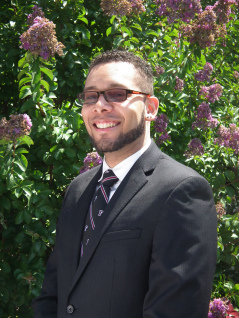The 27-year-old University of Miami graduate was promoted from his position of assistant director this summer, and officially became the acting director of the office at the start of this semester. He took over the position from Sofia Bautista Pertuz, who left to become assistant dean of students at Hofstra University.
Despite his heavy new workload Matos said he feels very ready to step into his new role, something he attributes, in part, to having had Pertuez as a predecessor.
“She left the department and the office in an impeccable shape,” Matos said. “A lot of questions are already answered in the way she left the office.”
Matos is prepared to lead the OMA, based on his prior experiences. He studied public relations in college, and after being active in coordinating programs for various clubs on his campus, he discovered a passion for event planning. As he learned more about job options in the field, he decided he wanted to continue working in collegiate planning.
After graduating, Matos was accepted to New York University for a masters program in higher education and administration. He attained the position at Fordham after his graduation in 2011, and quickly began playing a large role in the small office.
His primary responsibility as assistant director was to keep events at the Lincoln Center campus. As director, he handles Rose Hill responsibilities as well. Matos admitted, with a laugh, that his first real priority is to find a new assistant so that he can divvy up the responsibilities. Being the only person overseeing the department’s operations at both campuses, he said, has been stressful. So far, he is still in the middle of the hiring process.
“[The ad for the position] went up the 24th of September and we’ve had close to 100 applicants,” he said.
OMA, a relatively new office at Fordham, is growing all the time.
It started eight years ago as part of a strategic plan to promote multiculturalism at Fordham. Matos thinks that the lack of a long history has allowed the program to develop a fluid, inclusive identity, perhaps more so than similar programs at other schools.
“It is very unique from other multicultural affairs offices where, granted, they are open for everyone, but some departments, even at some other Jesuit institutions, have missions that are specifically for underrepresented students based off of identity,” Matos said. “They call those AHANA or AHALA, so basically serving African American, Hispanic, Asian American, Latino and Native American students. It’s an acronym specifically based off of identity. Some of those departments at a lot of institutions, and other Jesuit institutions, are very specific about their main focus and the students that they work with.”
Fordham’s Office of Multicultural Affairs, however, has developed a different philosophy.
“We’re able to collaborate in so many different ways, and bring so many different people into the fold and into this conversation about how we can learn to look at all of our different identities and intersection of different identities. [From there, we can] work together to make Fordham a better place.”
Fordham’s definition of “multicultural” goes beyond race or ethnicity. It also includes sexual orientation, gender, culture, community, etc. The basic goal, he said, is to allow students gain a better understanding of someone else’s living experience. This, he thinks, is what makes Fordham’s OMA so welcoming to everyone.
“Everyone is multicultural,” Matos said. “It’s something that is intrinsic to all of us.”
For the coming semester, Matos plans to stick by this identity, and to further emphasize it through his programming. He wants to improve diversity in the peer leader program, to collaborate with other student groups and to have additional training to further integrate peer leaders into the university.
He also wants to see more programming similar to Fordham’s existing Network of Support, like a LGBT and ally program that is open to all students who want to create a more supportive atmosphere on campus for people of all sexual orientations.
Matos’ hope is to replicate the success the Network has had, but with other cultural groups.
Another long-term goal that Matos has in mind is developing a program where students can make peer connections based on shared identities to help them navigate their college experience.
“Anyone can be a part of it,” Matos said. “Students will be able to connect with others, regardless of their personal identity, just to learn about other people with other identities.”
His goal for this program, ultimately, is to enable students to bring what they learn from OMA programs into whatever profession they end up in.
“We want to be having these individuals thinking ‘I can bring this into the business world, I can bring social justice and diversity into medicine,’” Matos said. “We’re really trying to develop students to have these competencies, and to be able to bring them out into the world, no matter where they choose to go.”
Katie Meyer is The Fordham Ram News Editor.





